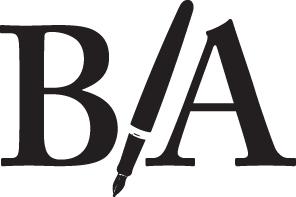How to Read 60 Books Per Year
If you don’t schedule time to read, you won’t.
If you don’t read you won’t grow — and will probably waste a lot of time doing other low-value activities.\ Which will leave you less time to read, now with even less desire to read. Which could actually make you dumber, rather than smarter.
I don’t know is that’s the actual psychology of reading, as I am not a psychologist. But I do know that reading is a critical part of my day and this is my own experience when I don’t put reading time on the calendar.
I have a goal to read at least 50-60 books per year. This is a modest goal, as I know people who read twice this number. I’m not quite that voracious (although could be if time wasn’t a zero-sum game). Sixty books are 5 per month. That seems like a good average, as there are some months I will read more and others less.
Here’s how I do it.
- Write down your goal.
An unwritten goal is not a goal. It’s an aspiration. A wish. A dream. Until a goal is tangible, it’s living in your head. Make it tangible. Make it real. Write it down. I will read XXXX books in the next 12 months.
- Make a book list.
Make a list of the books you need to read and a list of the books you want to read. You can use the shelves at Goodreads.com (I find this a useful tool), or a running list in a notebook. You can make this list based on interest, as well as “need to read”. Currently, I need to learn more about sales and how the sales process works. I am reading Stop Selling, Start Leading by a couple of my favorite leadership gurus, as well as Daniel Pink’s “To Sell is Human.” I tend to always have something in the productivity genre going on, which is currently Michael Hyatt’s “Free to Focus”, as well as something that will improve my writing skills. That current book of choice is “Write to Persuade” by Trish Hall. I also typically have a novel intertwined in the middle of this (Sci-fi/fantasy is my genre of choice, but I am known to dip into mystery/thriller on occasion). The point here is to make a list. Again, there is power in writing this stuff down.
- Decide your medium.
Personally, mixed mediums work well for me. Print, ebooks, audio-books. I have print books in my office. E-books are for any time I’m not in my office (my Kindle goes with me everywhere). Audio is when I work out, drive, or do housework. Audiobooks are the secret sauce for getting through a lot of material. Learn to listen. If you do you will double, maybe triple, the amount of reading you’ll be able to finish.
- Make your rules
I have a friend who only listens/reads when he’s working out. He works out for hours at a time. For me, the rule is my calendar. I calendar reading into my day. If I’m in the car, I listen to a book. If I’m cleaning the house, I listen to a book. Audio is mostly fiction (for me). I like having print or ebooks for non-fiction so I can underline and take notes a little easier. Whatever they are, make the rules that work for you and stick with them.
- Don't read every word.
Books serve you. Not the other way around. Especially non-fiction. I’m currently reading Michael Hyatt’s “Free to Focus”. Hyatt it notorious for curating a lot of material from other people. Nothing in this book is super new to me. I am reading carefully the parts of value, hitting the headers and the headlines, and skipping a lot of the anecdotal filler. You can do this with a lot of non-fiction books. Get the info you need. Every word and sentence is not necessary.
If you follow these five steps, I am confident you’ll hit a reading goal that’s much higher than you have right now.
It’s what I’m doing to hit 60 books in 2019.
I’m over half-way there.
“You will be the same person in 5 years as you are right now except for the people you meet and the books you read. ”
